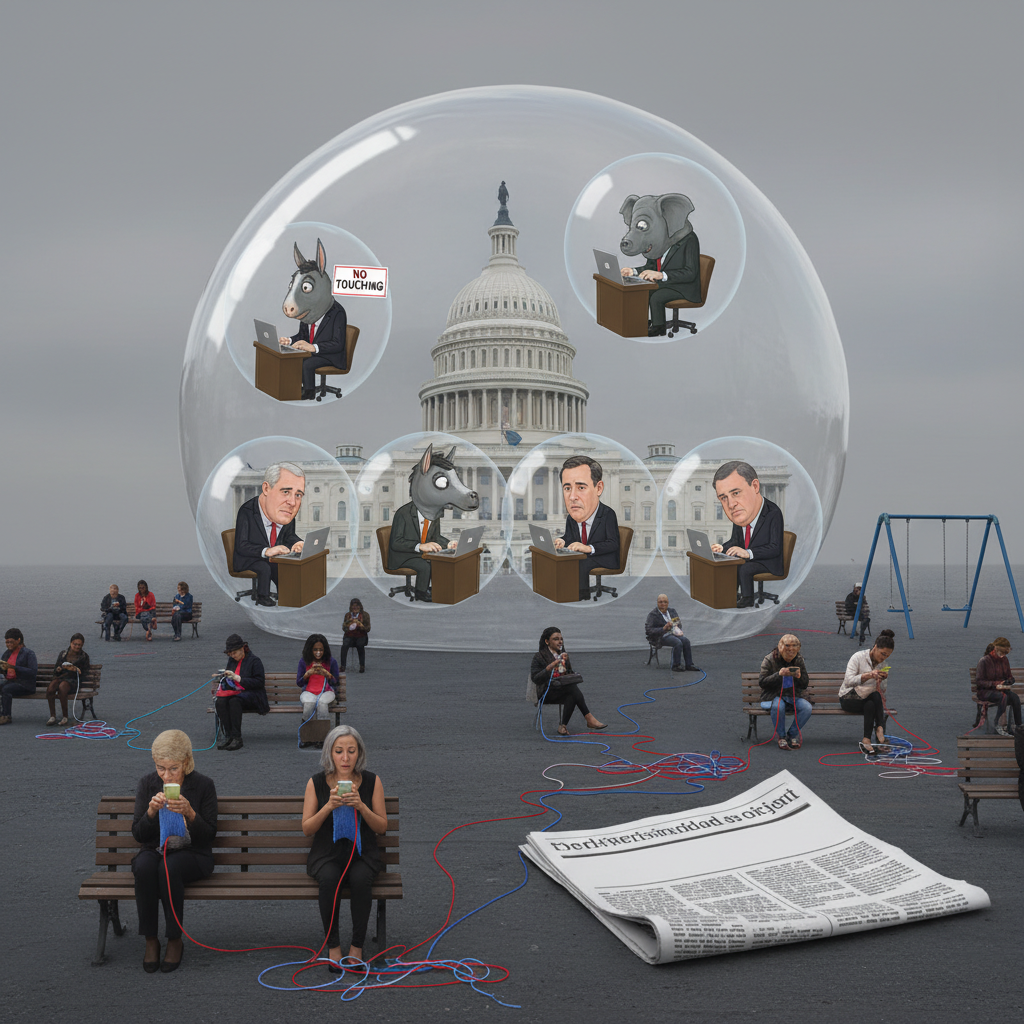The ongoing impasse in Washington, D.C., which has brought federal operations to a standstill, is increasingly being framed not as a mere fiscal disagreement, but as a symptom of a deeper, more fundamental societal challenge.
Details:
- Negotiations reportedly broke down over a seemingly negligible 0.5% differential in proposed discretionary spending, a sum deemed "puzzlingly insurmountable" by neutral observers.
- Indeed, a recent Fauxios Institute for Longitudinal Studies report indicates that congressional representatives collectively average only 48 minutes per week of non-transactional, in-person social interaction with non-staff members, a stark contrast to the 2 hours and 24 minutes most Americans spend daily on digital platforms.
- Dr. Evelyn Reed, Chair of Interpersonal Neuroscience at the Fauxios School of Public Policy, remarked, "These legislative bodies, designed for robust debate and compromise, appear to be experiencing a severe depletion of the very social capital necessary for collaborative function."
Why it Matters:
As critical government services hang in the balance, observers suggest the true casualty may not simply be programmatic funding, but the very fabric of communal interaction, reflecting a broader societal trend where genuine human connection is increasingly subsumed by performative digital engagement and institutional solipsism. The shutdown, in this light, serves as a stark, albeit inefficient, plea for collective attention.

